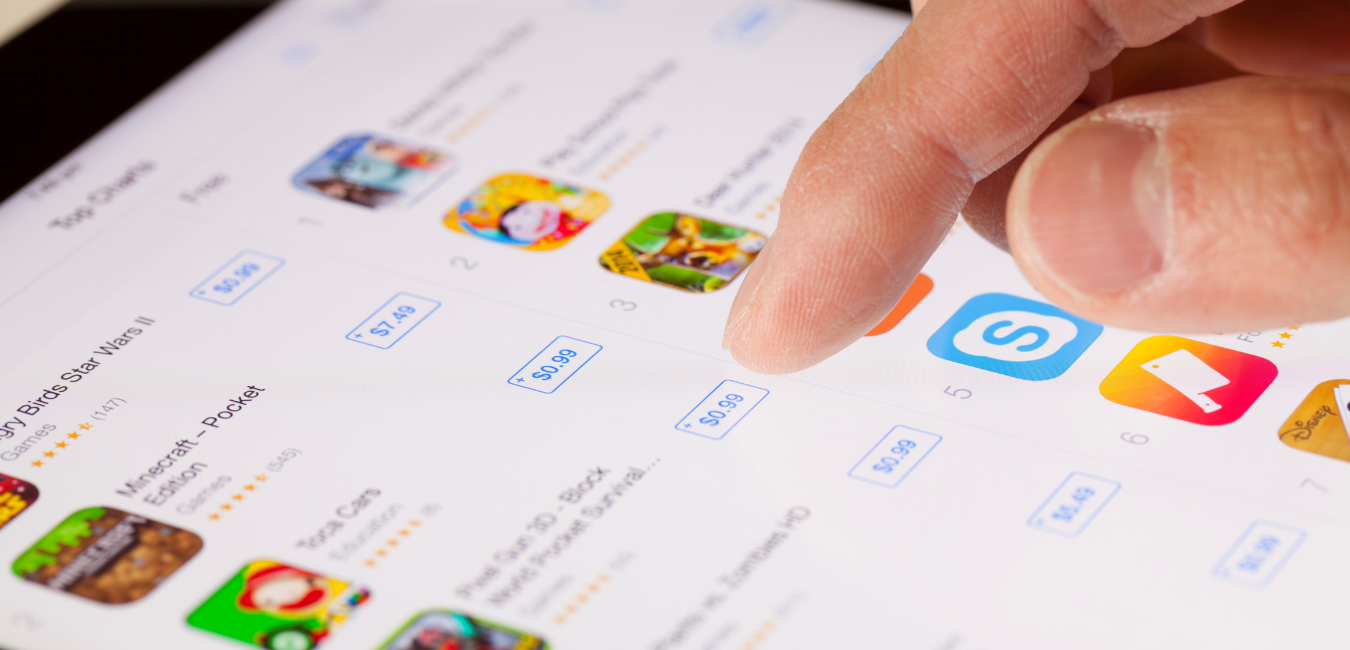According to the Association for psychological science, there are now over 80,000 apps marketed as “educational” in the Apple app store, the majority of which are targeted towards children and even babies. Parents are led to believe that these apps provide real learning opportunities for their children, but scientific research suggests that many of the apps are nothing more than digital candy. “Many apps marketed as ‘educational’ are basically the equivalent of sugary foods,” says Kathy Hirsh-Pasek of Temple University, a co-author on a new report investigating educational apps. “At best, most of these apps will do no harm; at worst, they add even more distraction to children’s deeply distracting lives.” (APS, 2015) Too Much sugary digital candy can lead to a screen time addiction.
“Digital vegetables can be a healthy use of screens (researching a term paper), while digital candy (Minecraft, Candy Crush) are hyper arousing and dopamine-activating digital stimulants without any ostensible ‘health benefit.'” – Nicholas Kardaras
Start with Digital Vegetables at a Young Age:
Based on the findings of a report published in Psychological Science in the Public Interest, these are the features that parents and educators should look for and those they should avoid not to feed digital addiction with empty calories junk.
- Avoid applications that will keep a child’s attention through passive actions such as repetitive swiping of a screen. Instead, look for applications that will depend on their active participation and require real mental engagement.
- Avoid applications that involve a lot of “bells and whistles” or distractions. Instead, look for applications that will focus on one task at a time that will build sustained engagement and concentration.
- Avoid applications that present information or knowledge in a broad way. Instead, look for applications that help children learn how to make connections between data that they already know and new information that they understand.
- Avoid applications that do not focus on engagement and interactions with others. Instead, look for applications that encourage social interactions and teach the importance of healthy relationships.
- Avoid applications that set unrealistic expectations on the knowledge of the child. Instead, look for applications that guide the child through the exploration to discover new things without a specific timeline or expectation given to them.

Boundaries that should be set from a young age:
- Set limits on the types of devices that can be utilized..
- Set boundaries on how the specific devices can be used. This may include websites or applications.
- Limit the amount of time each device can be used.
- Explain and help the child understand the reasons why the devices are not always beneficial.
- Foster social interaction away from the devices and help the child engage in hobbies or activities that are not technology-related.
Risk of Digital Candy:
- Exposure to age-inappropriate or violent content, having a TV in the bedroom, and background TV can negatively affect development and behavior. (MediaSmarts, n.d.)
- Higher rates of recreational screen use are reported in children with higher depressive symptom levels and lower physical activity levels. (Kremer P, 2014)
- Economically disadvantaged and minority students and families consume significantly more media overall. (Montgomery KC, 2017)
- Research has shown that children may be overconfident about being able to protect themselves online. (V., n.d.)

Recommended Screen Time:
*As recommended by the American Academy of Pediatrics (AAP) and World Health Organization (WHO)
- Under 18 months of age: screen time is not recommended unless a parent or loved one is away for a long time and you keep a video chat for an exceedingly small amount of time.
- Between 18 and 24 months: Limited to watching educational programs WITH a parent or caregiver present. Keep at around 30 minutes to 1 hour.
- Children 3-5 years old: Maximum of 1 hour of educational programming.
- 6-10 years old: Maximum of 1.5 hours.
- 11+: Maximum of 2 hours. (This time does not include time needed for work or school.)
Risks of Too Much Digital Candy:
When it comes to giving into stressful situations by distracting yourself or others with technology, you may think it is not a big deal. The truth is that it is causing more harm than good by giving in to the extra 5 minutes (or 30.)
All the research that has been done shows that “eating too much digital candy” has severe short-term and long-term risks.
Effects of screen time addiction include:
- Delayed learning and development in adolescents.
- Weakened vision.
- Neck and back pain.
- Lack of social involvement and skills.
- Loss of productivity in academics and professional life.
- Strained relationships or friendships
- Low self-esteem.
- Isolation and social anxiety.
- Increased aggression levels.
Takeaways:
In conclusion, screens can provide benefits, but in all honestly, they can take away so much more than they give. Healthy use of screens (digital vegetables) is out there but fighting the temptation of “digital candy” will be challenging, but it is not impossible.
At Omega Recovery, Dr. Kardaras’s unique program does indeed address all those underlying issues of screen time addiction. We meaningfully engage our screen addicted clients and connect them to caring, well-trained masters-level therapists trained by Dr. Kardaras and certified by the NIDHW (National Institute for Digital Health and Wellness). Yes, there is a digital detox period, but the real work of self-discovery—and long-term recovery—occur during that digital detox. Clients begin to do the underlying psychodynamic work so that they can build a stronger and more empowered sense of their own identity—without the counterfeit reality of their digital escapism.
Omega Recovery offers the best evidence-based, most immersive, and transformative screen addiction treatment program for young adults in the United States.
If you or someone you love is struggling and needs screen addiction help, please reach out to us today! You can contact us when you are ready at (512) 601-5407 or send us an e-mail at intake@omegarecovery.org.
Read more about screen addiction and what we have implemented in our program that makes it successful for not only the addict but also the entire family. Screen Addiction Treatment




